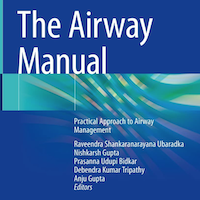
Investing in Physicians’ Well-being is Just Good Business
The moral and ethical reason for physician practices, hospitals and academic centers to address physician burnout should be obvious, but a new medical journal article makes the case for why addressing doctors' well-being... read more

Alleviating ICU Survivors’ Burden
In a review paper, a team of international researchers highlights how critical illness and critical care affect longer-term outcomes. According to the authors, the severity of acute illness determines the degree of impairment... read more
What Can Psychologists Do in Intensive Care?
As awareness has grown of the great distress intensive care patients may suffer, units have begun recruiting psychologists to their teams. Intensive care unit psychologists aim to assess and reduce distress for patients,... read more

Dietitians in Critical Care
Patients in the critical care setting are at risk of malnutrition. The provision of nutrition support (enteral or parenteral) to critically ill patients is vital, but achieving the optimum quantity and balance is a contentious... read more

Causes of Mortality in ICU-Acquired Weakness
Intensive care unit–acquired weakness (ICU-AW) is a common complication of critical illness and is associated with increased mortality, longer mechanical ventilation and longer hospital stay. Little is known about the causes... read more
Your plumber offers a money-back guarantee. Should your doctor?
One recommendation is that patients shouldn't have to pay for their care if they experience certain avoidable complications up to 90 days after surgery. A participating hospital would guarantee its work, or patients would... read more

Harrison’s Nephrology and Acid-Base Disorders
Featuring a superb compilation of chapters related to nephrology and acid-base disorders derived from Harrison's Principles of Internal Medicine, Nineteenth Edition, this concise, full-color clinical companion delivers the... read more

Inpatient antiviral treatment reduces ICU admissions among influenza patients
Administering inpatient antiviral influenza treatment may reduce admissions to the ICU among adults hospitalized with flu, according to a study presented at ID Week 2017, an infectious diseases meeting. While interventions... read more

The Relationship between Clinical Experience and Quality of Health Care
Physicians with more experience are generally believed to have accumulated knowledge and skills during years in practice and therefore to deliver high-quality care. However, evidence suggests that there is an inverse relationship... read more

Four in Five U.S. Physicians Have Been Affected by Cyberattacks
More than four in five U.S. physicians (83 percent) have experienced some form of a cybersecurity attack, according to new research released by Accenture and the American Medical Association (AMA). This, along with additional... read more

Guidelines for the Diagnosis and Management of Critical Illness-Related Corticosteroid Insufficiency – Part I
Evidence-based recommendations for the use of corticosteroids in critically ill patients with sepsis and septic shock, acute respiratory distress syndrome, and major trauma have been developed by a multispecialty task force.... read more

Prevention of Hospital Infections by Intervention and Training (PROHIBIT)
Results of a pan-European cluster-randomized multicentre study to reduce central venous catheter-related bloodstream infections. This study demonstrates that multimodal prevention strategies aiming at improving CVC insertion... read more

The Effect of ICU Out-of-Hours Admission on Mortality
Adjusted risk of death for ICU admission was greater over the weekends compared with weekdays. The absence of a dedicated intensivist on-site overnight may be associated with increased mortality for acute admissions. These... read more

How Bacteria May Help Regulate Blood Pressure
While bacteria once had negative connotations, scientists are now saying it could be good for you. Smell receptors in kidneys sniff out signals from gut bacteria for cues to moderate blood pressure. Some years ago, when Jennifer... read more
We Need to Talk About Trauma
One of the most haunting images from my time as a junior doctor working in Hackney in the mid-1990s was in an A&E (emergency) department while we tried to resuscitate a man in his 40s. In the corner of the room stood two... read more

Hope is a Therapeutic Tool
Everyone who has been a patient, or accompanied a relative to see a doctor, recognises the importance of the doctor-patient relationship. At its heart is the patient's need to understand what is wrong, be understood, and... read more

Guiding Vascular Access Selection for Intensive Care
Determining appropriateness for vascular access devices limits the risk of complications in critically ill patients. Michigan Appropriateness Guide to Intravenous Catheters (MAGIC) establishes evidence-based indications as... read more








